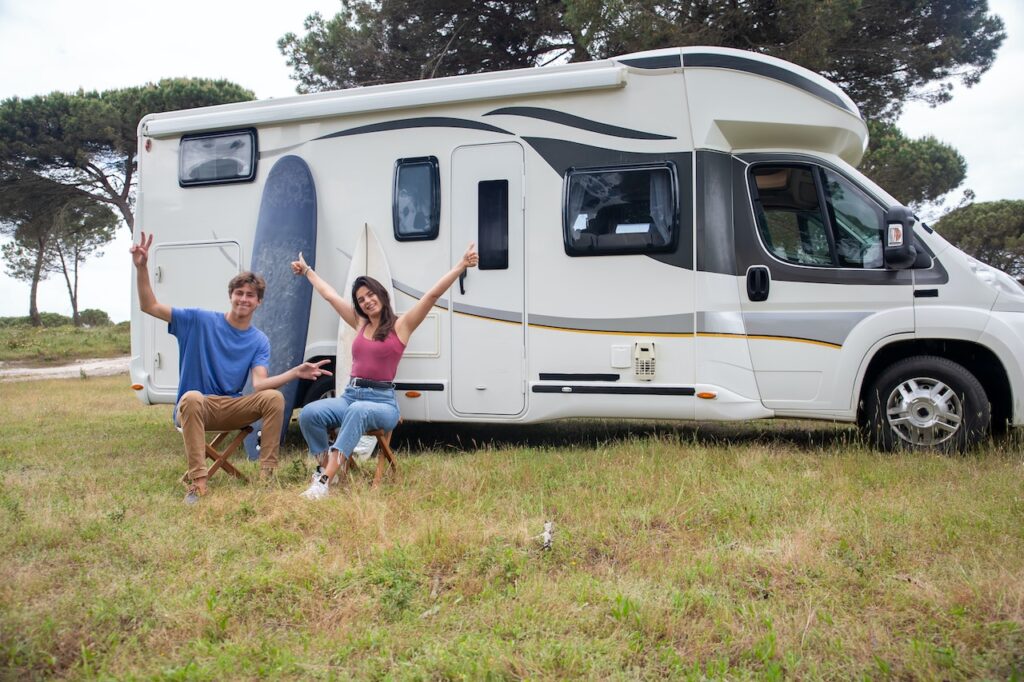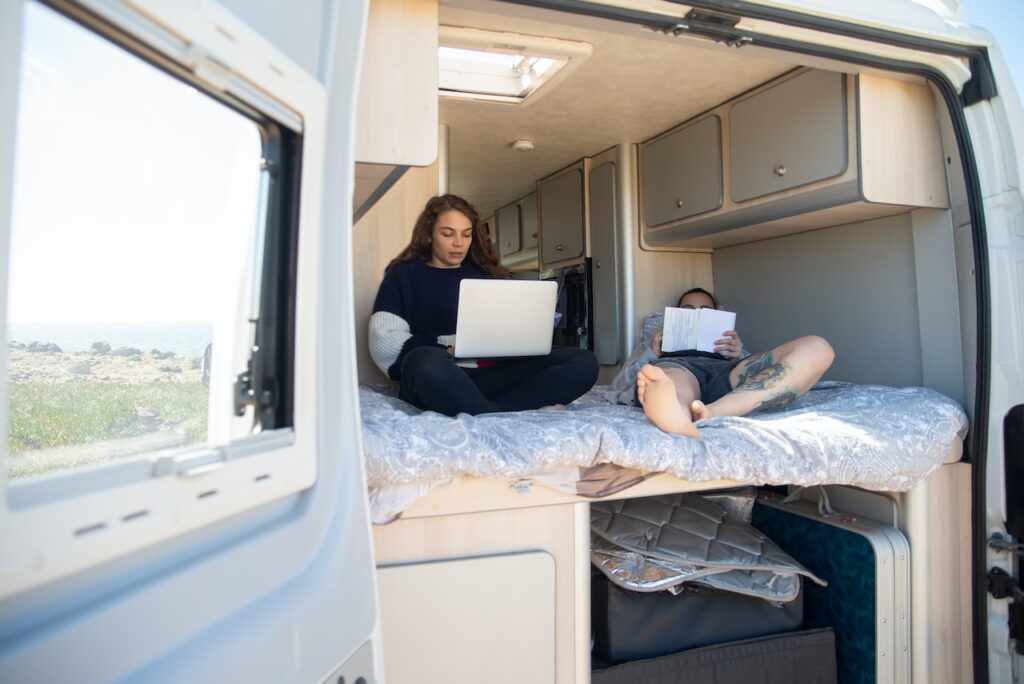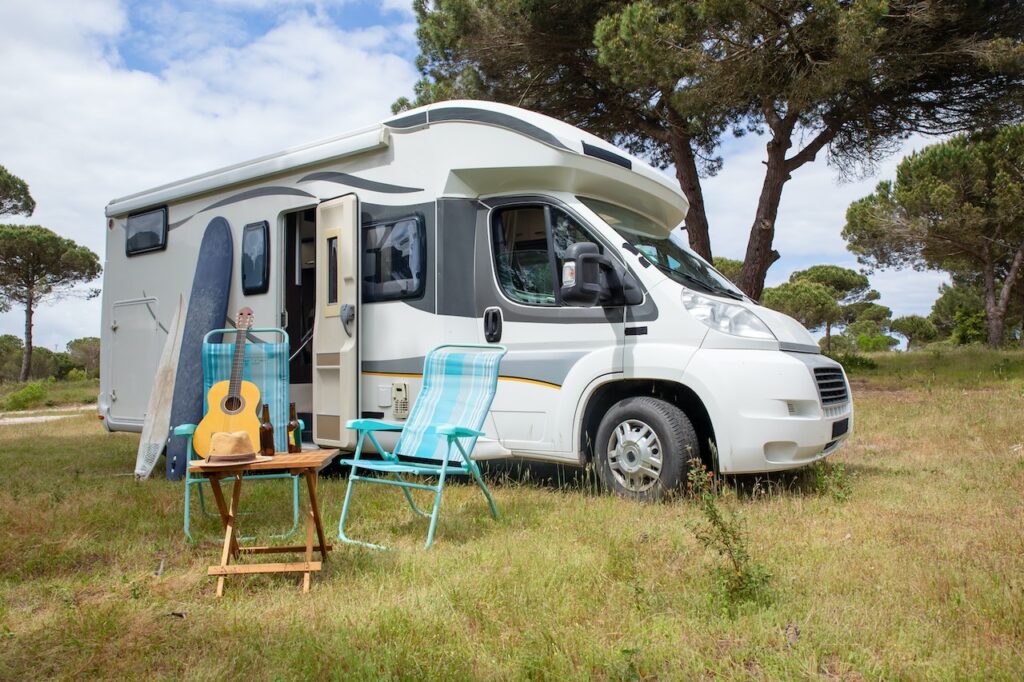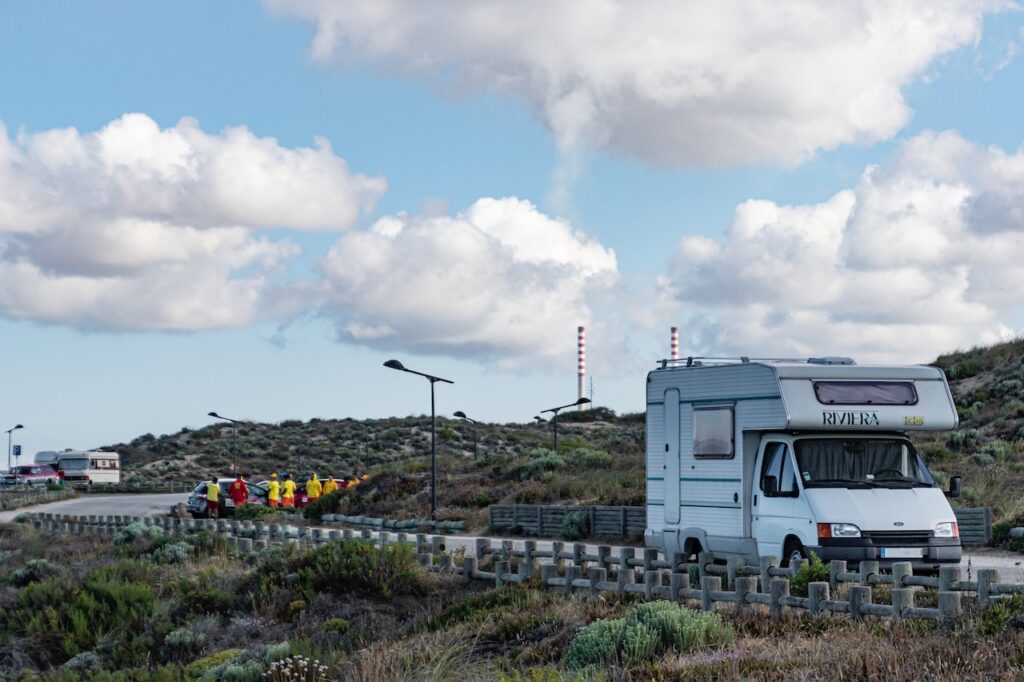Traveling across the country or planning a long getaway can be a thrilling and enriching experience. One of the most convenient ways to make this journey even more memorable is by renting an RV for a month. The beauty of an RV is that it offers the freedom to explore at your leisure, without the hassles of booking hotels or being tied to a strict itinerary. Whether you’re traveling solo or with family and friends, a month-long RV rental can give you the flexibility and comfort you desire.
The process of renting an RV for a month is relatively easy, and there are several benefits of doing so. Most rental platforms offer competitive prices and a wide range of RV options to suit various budgets and preferences. Additionally, many RV owners and rental agencies accommodate longer-term contracts, which provide cost savings compared to daily or weekly rentals.
As you embark on your RV adventure, the options for exploration are practically limitless. From scenic drives through national parks to quaint towns and vibrant cities, you’ll have the opportunity to immerse yourself in unforgettable experiences that cater to your interests and pace. With an RV, the world is truly your oyster, making it an ideal way to spend a relaxing and adventurous month on the road.
Understanding RV Rentals
Renting an RV (recreational vehicle) can be a fantastic way to explore new destinations and enjoy the freedom of the open road. In this section, we will discuss the different types of RVs available for rent and some notable rental platforms to help you find the perfect RV for your month-long adventure.
Types of RVs to Rent
There are three main classes of RVs to choose from when renting for a month:
- Class A – These are the largest and most luxurious RVs, often resembling a bus in shape. They can accommodate several people comfortably and come with numerous amenities, such as full kitchens, spacious bathrooms, and separate sleeping quarters.
- Class B – Also known as campervans, Class B RVs are more compact and easier to drive than Class A ones. They offer limited amenities compared to their larger counterparts but still provide the essential facilities, such as a small kitchen, a bathroom, and sleeping space for two to four people.
- Class C – Class C RVs are a hybrid between Class A and Class B, offering a balance between size, amenities, and driving ease. They usually come with a full kitchen, bathroom, and sleeping areas for up to six people.
Notable Rental Platforms
There are various rental platforms available to find the right RV for your trip. Here are a few notable options:
- RVshare: This popular platform allows RV owners to list their vehicles for rent, giving renters a wide variety of options. Prices and availability will vary depending on the location, class of RV, and rental duration.
- Outdoorsy: Similar to RVshare, Outdoorsy connects renters with RV owners. They offer a user-friendly platform, 24/7 customer support, and various insurance options for both parties.
- RVEzy: As Canada’s largest RV rental marketplace, RVEzy offers a vast selection of RVs to choose from. They provide dedicated customer support and insurance coverage for both renters and owners.
- RVnGO: This platform prides itself on having no service fees for renters and boasts a broad selection of RVs. RVnGO provides a secure booking process and offers insurance through their partner, MBA Insurance.
It’s worth checking multiple rental agencies to ensure you find the best fit for your month-long adventure. Take the time to research and compare the vehicles, prices, and amenities offered by different providers before choosing the perfect RV to rent for your trip.
The Process of Renting an RV
Steps to Rent an RV
Renting an RV for a month is a simple process that involves several steps. First, determine your needs and select the type of RV suitable for your trip. There are various types to choose from, such as Class A, B, and C motorhomes, travel trailers, and fifth wheels.
Next, research reputable RV rental companies in your area and compare pricing for your desired model. Once you have selected a company, inquire about their rental policies, insurance requirements, and any extra fees or charges that may apply.
To secure your month-long RV rental, initiate a rental agreement with the company. This agreement will detail the rental terms, conditions, and payment options. Before signing, make sure to thoroughly read and understand the terms.
Upon signing the rental agreement, you may be required to provide a security deposit in addition to the rent. This deposit is typically refunded upon returning the RV in the same condition as it was rented.
Finally, prior to picking up the RV, complete a thorough inspection with a representative of the rental company. This inspection will verify its condition and identify any existing damages that should not be your responsibility.
Long-Term vs. Short-Term Rentals
When comparing long-term rentals, such as renting an RV for a month, to short-term rentals, there are several aspects to consider:
- Cost: Monthly rentals often come at a lower per-day rate than weekly or daily rentals. However, overall costs may be higher due to the longer rental period.
- Flexibility: Renting an RV for a month provides more opportunity to explore multiple destinations and make changes to travel plans.
- Availability: Some rental companies offer discounts or incentives for long-term renters, which may not be available for short-term rentals.
- Maintenance: Long-term rentals may require more responsibility in terms of maintaining the RV, as renters are expected to perform basic tasks like cleaning and checking fluid levels.
In conclusion, the process of renting an RV for a month involves following a few key steps and understanding the differences between long-term and short-term rentals. By selecting the right RV for your needs and working with a reputable rental company, you can confidently embark on a memorable and enjoyable month-long adventure.
Cost Considerations
Determining Your Budget
When planning to rent an RV for a month, it’s essential to determine your budget before diving into the rental process. Monthly RV rental prices can vary significantly depending on factors such as the type of vehicle, rental location, and rental duration. To start, consider your expected travel expenses, including cost of gas, campsite fees, and food.
You may also want to look for available discounts or incentivized prices, such as those offered for extended rentals or during off-peak seasons. Keep these factors in mind as you determine a budget:
- Type of RV: Class A motorhomes typically have higher rental costs, while smaller RVs like Class C motorhomes and travel trailers tend to be more budget-friendly.
- Rental location: Rental costs can vary depending on your pickup and drop-off locations.
- Seasonal rates: Summer months often see a surge in demand and subsequent price increases. Discounts may be available in the off-peak season.
Understanding Rental Rates
After establishing a budget, it’s essential to understand the various rental rates and fees involved with a monthly RV rental. Here are some common factors that can influence RV rental prices:
- Base rental rate: The base rental rate is the daily or monthly fee for renting the RV. The base rate should account for factors like size, age, and quality of the RV.
- Insurance: Most RV rental agencies require insurance. It’s essential to determine what type of coverage is provided by the rental company and consider purchasing additional coverage if necessary.
- Mileage limitations: Many RV rental companies have a mileage cap with additional per-mile fees for surpassing that limit. Make sure you know how many miles are included in your rental and adjust your travel plans accordingly to avoid unexpected fees.
- Generator fees: Some RV rentals require generator fees for any usage beyond a specified limit. Ensure the costs are clearly stated and factor them in when determining your budget.
- Cleaning fees: Some RV rental companies charge mandatory cleaning fees, while others only apply these fees if the vehicle is returned in poor condition. Be aware of these charges ahead of time and plan accordingly.
By considering budget, rental rates, and potential fees, you can make an informed decision about a long-term RV rental that suits your needs.
Additional Costs and Fees
Insurance and Protection
When renting an RV for a month, it’s essential to consider insurance and protection. Most RV rental companies require renters to have RV insurance to protect both parties in case of an accident or damage. Some companies may offer insurance packages as an add-on, while others might necessitate acquiring a separate policy.
RV Insurance:
- Comprehensive: Covers damages from incidents like theft, vandalism, fire, and more
- Collision: Covers damages caused by an accident regardless of fault
- Liability: Covers damages to others and their property in case of an accident caused by the renter
It’s crucial to evaluate the coverage limits and any possible deductibles before finalizing your decision.
Possible Extra Fees
There are various fees and charges that may arise during your RV rental experience. Being aware of these extra costs will help you plan and budget accordingly.
One-Way Rental: If you plan to pick up the RV at one location and drop it off at another, expect to pay a one-way rental fee. These fees can vary, so it’s essential to inquire beforehand.
Generator and Mileage Fees:
- Mileage: Some RV rental companies charge per mile driven. Be sure to research the allowed mileage and any associated costs.
- Generator: While some RV rentals include unlimited generator usage, others have a daily hour allowance. Exceeding this limit can result in extra fees.
Delivery and Moving Fees: If you require assistance with delivery or moving, some RV rental companies may provide this service for an additional fee. Be sure to inquire about the cost and availability of such services.
Other Rental Fees:
- Cleaning: A cleaning fee might be charged if the RV is returned in an unacceptable condition.
- Late fees: If you’re late returning the RV, expect to pay a late fee for each day it is overdue.
- Additional equipment: Extra items like kitchenware, bedding, or outdoor equipment could incur additional charges.
Being aware of these additional costs and fees when renting an RV for a month will help you budget accordingly and avoid surprises. Carefully reviewing the terms and conditions of your rental agreement is critical to having a smooth and enjoyable RV rental experience.
Amenities and Inclusions
What to Expect in Your RV
When renting an RV for a month, you can expect a variety of essential amenities and inclusions to make your stay comfortable. Most RVs come equipped with bedding, towels, and cookware, ensuring you have a pleasant living space during your travels. Specifically, you can anticipate the following:
- Bedding: Sheets, pillows, and blankets for all beds within the RV
- Towels: Bath, hand, and dish towels provided for your personal needs and cooking purposes
- Cookware: A full kitchen setup, including pots, pans, utensils, plates, cups, and other cooking essentials
In addition to these basic necessities, many rental RVs are designed with extra storage areas, convenience features, and entertainment systems to enhance your road trip experience. These amenities may vary by RV type and rental company.
Optional RV Extras
While most rentals come with standard amenities, you can often choose to add optional extras to meet specific needs or preferences. Some RV extras might include:
- Outdoor Equipment: Folding chairs, portable tables, or grills for outdoor gatherings
- Entertainment Options: TVs with built-in DVD players, satellite dishes, or gaming consoles
- Additional Appliances: Portable generators, electric heaters, or fans for added comfort
Keep in mind that these optional extras may incur additional charges and could vary depending on the rental company and RV model. It is always wise to inquire about available options and any associated costs when booking your monthly rental to ensure a customized and enjoyable journey.
Choosing the Right RV Model
Different Models and Their Benefits
There are several types of RV models available, each with their own benefits and features. Class A motorhomes are large, luxurious, and offer plenty of space for families or large groups. They often have full kitchens, bathrooms, and separate sleeping areas, making them suitable for long-term travel.
Travel trailers are towable RVs that come in various sizes and configurations, from compact teardrops to spacious options with slide-outs. They’re ideal for those who want flexibility and control over their travel, as they can be unhooked and left at a campsite.
Truck campers are compact RVs that are mounted on the bed of a truck. They’re perfect for off-road adventures and boondocking, as they provide sleeping and basic living amenities without sacrificing the truck’s maneuverability.
Fifth wheel travel trailers, also known as 5th wheels, are large towable RVs that connect to a truck using a unique hitch. They’re typically more spacious than travel trailers and offer additional features like larger bathrooms and separate bedrooms.
Pop-up campers are smaller, lightweight RVs with collapsible roofs that allow them to be easily stored and towed. They can provide a comfortable and affordable option for those looking for a simpler RV experience.
Toy haulers are RVs designed to transport ATVs, motorcycles, or other recreational vehicles. They typically come in travel trailer or fifth wheel configurations and offer living quarters in addition to the garage space for your toys.
Factors to Consider
When choosing the right RV model, there are a few factors to consider:
- Size: The size of the RV directly impacts the amount of living and storage space available. Larger RVs like Class A motorhomes and 5th wheels offer more room for comfort, but they may be more challenging to navigate and park.
- Budget: RV prices can range significantly based on the model and its features. It’s essential to balance your budget with your desired amenities.
- Towing capacity: If you’re considering a towable RV, make sure your vehicle can safely tow the weight of the RV and its contents.
- Travel style: Your preferred travel style will impact which RV is right for you. If you often go off-road or boondock, a truck camper or compact travel trailer may be a better fit.
- Amenities: Consider what amenities are essential for your comfort, such as a full kitchen or bathroom, and make sure the RV model you choose can accommodate your needs.
- Maintenance: Be prepared for the maintenance required for each RV type, as some may have more complex systems that require more time and effort to maintain.
Understanding Peer-to-Peer RV Rentals
What is Peer-to-Peer RV Rental?
Peer-to-peer RV rental is a system where RV owners rent out their vehicles to prospective renters through an online platform. This idea enables those who want to experience a road trip or vacation with an RV to rent one without the need to buy or maintain an RV themselves. Often, peer-to-peer RV rental services facilitate these transactions by providing features like security, payment processing, and insurance coverage.
Benefits of Peer-to-Peer Rental
There are several advantages of using a peer-to-peer RV rental service for both the RV owners and renters:
- Extra Income: Renting out their RV allows the owner to generate an additional source of income. An RV, when not in use, can be a drain on resources due to maintenance and storage costs. By renting it out, the owner can offset these expenses while possibly earning a profit.
- Flexible Schedules: Renters can choose from a variety of dates and durations to suit their needs. This arrangement offers flexibility and can be more accommodating than traditional RV rental companies with limited selections and strict schedules.
- Personalized Experience: Peer-to-peer rental services often display detailed profiles of RVs, including photos, descriptions, and owner information. This allows renters to make a well-informed decision based on their preferences and potentially build trust and rapport with the RV owner.
- Wide Range of Options: Renters have access to a diverse range of RV models and styles that may not be readily available through traditional rental companies, increasing the likelihood of finding an RV that suits their needs.
- Competitive Prices: Due to the peer-to-peer nature of the platform, renters can often find more competitive pricing compared to traditional RV rental companies.
Through the use of peer-to-peer RV rental services, RV owners and renters can mutually benefit and enjoy the flexibility and convenience that these platforms offer.
Parking and Boondocking
Parking Your RV
When planning to rent an RV for a month, it is essential to consider parking options. RV parking rules and regulations vary depending on the location. Always research and follow local laws to avoid fines or other penalties. Here are some common parking options for your RV:
- RV Parks and Campgrounds: These facilities often provide amenities like hookups, restrooms, and laundry facilities. Be sure to reserve your spot in advance, especially during peak seasons. Prices vary depending on the services offered and location.
- Public Lands (National Parks, State Parks, and Forests): Many public lands allow RV parking, either in developed campgrounds or designated dispersed camping areas. Check the rules and regulations of the specific area you plan to visit before arriving.
- Retail Parking Lots: Some businesses, like Walmart and Cracker Barrel, may allow overnight RV parking. Always ask for permission from the store management and be courteous by avoiding blocking traffic or taking up multiple spaces.
Understanding Boondocking
Boondocking, also known as dry camping or wild camping, is the practice of parking an RV without access to amenities such as water, sewer, or electrical hookups. It is an excellent option for those seeking a more remote and economical camping experience. Here are some tips for boondocking responsibly:
- Location Selection: Choose a spot that is flat, level, and has no environmental hazards or restrictions. Do your research to ensure you are on public land or private land with permission from the owner.
- Conservation: Practice Leave No Trace principles and minimize your impact by disposing of trash, conserving water, and being mindful of noise and light pollution.
- Safety: Be aware of your surroundings and keep emergency supplies on hand in case of unexpected events, like bad weather or medical issues.
Boondocking can be a rewarding experience for those willing to forego some creature comforts in exchange for a unique and more secluded camping adventure. Proper research, preparation, and responsible practices will ensure a positive experience when parking your RV or boondocking during your month-long rental.
Customer Support and Reviews
Getting Help During Your Rental
One important aspect of an RV rental experience is having access to quality customer support services. Reliable companies usually offer a dedicated customer service hotline where customers can reach support staff to address any concerns or questions. In cases of emergencies or malfunction, professional roadside assistance should be available 24/7 to ensure safety and comfort during your travels.
When choosing an RV rental company, inquire about their customer support services, such as:
- Availability and response time of their support team
- The thoroughness and quality of their assistance
- The types of issues they can handle
These factors may differ from one company to another, and it is essential to select a provider that offers the level of support you feel most comfortable with.
Considering Customer Reviews
Another way to gather information about the efficiency of a rental company’s customer support is to research customer reviews. Going through reviews from past customers can provide useful insights into the company’s responsiveness, expertise, and overall service quality. Pay close attention to recurrent issues mentioned in reviews, as they may be indicative of underlying company shortcomings.
Keep in mind that every RV rental experience is unique, and reading multiple reviews from different sources will give you a broader perspective. It is also essential to note the date of the reviews, as older ones may not be indicative of the company’s current customer support standards.
By carefully considering customer reviews and researching the available support services, you can make a well-informed decision about your RV rental experience and choose a company that prioritizes customer satisfaction.
Concluding Thoughts on Monthly RV Rentals
Monthly RV rentals offer an excellent opportunity for those seeking an extended getaway or a temporary living arrangement. This long-term RV rental option provides the freedom to explore at your own pace, without the commitment and cost associated with purchasing an RV.
When considering a monthly RV rental, it is essential to research various rental companies and RV models to determine the best fit for your needs. Make sure to factor in the size, amenities, and overall comfort of the vehicle you choose. Furthermore, don’t forget to explore different rental plans and any additional offers.
One of the key benefits of opting for a long-term RV rental is the potential cost savings. Many rental companies offer discounted rates for extended rental periods, which can lead to significant savings when compared to shorter RV rental stays or traditional accommodation options like hotels.
To ensure a smooth and enjoyable experience, be prepared for the responsibilities associated with RV living. Maintenance, insurance coverage, and understanding the operation of various systems within the RV are all essential factors to consider. Additionally, research and make note of appropriate campgrounds and parking areas that accommodate long-term stays.
In conclusion, monthly RV rentals present a flexible and cost-effective solution for extended travel or temporary housing. With thorough research and preparation, a long-term RV rental can serve as a comfortable home away from home, allowing for the opportunity to create unforgettable memories during your travels.
Frequently Asked Questions
What are the average monthly costs for renting an RV?
The average monthly costs for renting an RV vary depending on factors like size, age, location, and season. Typically, smaller RVs such as Class B models cost between $1,500 to $3,500 per month, while larger Class A and Class C RVs may range from $2,500 to $6,000 per month. Be mindful that these costs can fluctuate, and it’s important to check rental sites for the latest pricing.
Are there any special long-term rental discounts available?
Many RV rental companies offer special long-term rental discounts for travelers who rent for a month or longer. These discounts can vary from 10% to 30% off the standard nightly rate, reducing the overall cost of your rental. Be sure to inquire directly with the rental company about available discounts when booking your reservation.
What are the insurance requirements for a month-long RV rental?
Insurance is required for a month-long RV rental. Most rental companies provide insurance options as part of the rental agreement but may have different coverage levels and deductible amounts. Alternatively, some renters may consider obtaining a temporary RV insurance policy through their own insurance provider. When booking your rental, make sure to ask about insurance requirements and options.
Can I rent an RV directly from the owner for a longer period?
Yes, renting an RV directly from the owner is possible through peer-to-peer rental platforms. These sites facilitate rentals between RV owners and travelers, often for extended periods. Renting from an individual may allow for more flexibility with scheduling, pricing, and rental terms, but it’s essential to communicate clearly with the owner and ensure the RV meets your needs and expectations.
What is usually included in a long-term rental agreement?
A long-term rental agreement typically includes details about rental pricing, payment schedules, mileage allowances, and any additional fees. Insurance coverage, maintenance responsibilities, and rules for using the RV, such as pet policies and smoking restrictions, should also be clearly outlined. It’s important to read and understand the rental agreement thoroughly before signing and starting your month-long adventure.
Are there age or license restrictions for month-long RV rentals?
Most RV rental companies require drivers to be at least 25 years old to rent an RV. However, some companies may allow younger drivers with an additional fee or insurance requirements. A standard driver’s license is typically sufficient for operating an RV in the United States, but restrictions may vary when traveling in foreign countries. Check with the rental company about any specific age or license requirements during the booking process.






